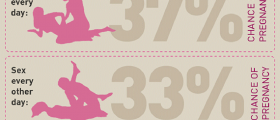me and my girlfriend had unprotected sex twice in a gap of 10 days; she took I-pill both times the very next day. After she missed her periods, we tried the home pregnancy kit, and it is showing a faint line. What should I do?
Loading...
A faint line on a home pregnancy test may suggest that your girlfriend is pregnant. These tests detect the hormone human chorionic gonadotropin (hCG), which is produced in the body during pregnancy. If there's a faint line, it may mean that the test has detected a small amount of this hormone.
Emergency contraceptive pills, like the I-pill, are effective in preventing pregnancy if taken within 72 hours of unprotected sex. However, they are not 100% effective, and their efficacy decreases over time after the sexual encounter. Taking emergency contraception multiple times within a short period does not guarantee prevention of pregnancy and is not recommended as a regular form of contraception.
Here's what you should do next:
-
Retest: Sometimes, taking a test too early can result in a faint line. Your girlfriend should wait a few days and take another pregnancy test to confirm the result. Follow the instructions on the test kit carefully. It's best to take the test first thing in the morning when the urine is most concentrated.
-
Doctor's Appointment: If the second test also shows a faint line or if she still doesn't get her period, she should consult a doctor. A healthcare provider can confirm the pregnancy with a more sensitive urine pregnancy test or a blood test, and provide advice about next steps.
-
Discuss the Situation: If the pregnancy is confirmed, both of you should have a thorough discussion about your options and what each of you feels comfortable with. These options may include continuing the pregnancy, adoption, or abortion.
-
Regular Contraception: Regardless of whether or not your girlfriend is pregnant, you should consider using regular contraception to prevent unplanned pregnancies in the future. There are many types of contraception, including condoms, the birth control pill, IUDs, implants, and more. A healthcare provider can help you both decide which one is best for you.
Loading...















